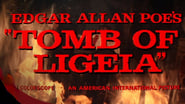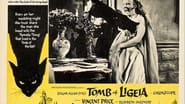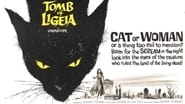Kirpianuscus
Poe, Corman and Price. and an almost predictable result of this collaboration. because all remains impressive. the script, the acting, the atmosphere, the cinematography. so, not surprises. only a horror as example of admirable old fashion recipe. because it is more than an excellent adaptation. it is an impressive show, seductive, ambiguous, preserving the flavor of the abbey and the mystery in elegant and subtle manner. so, a real good film. with many chance for become memorable for the viewer.
tapio_hietamaki
These Vincent Price movies based on Edgar Allan Poe stories are charming, much in the same way as Hammer Horror movies but less campy. The Price movies take themselves more seriously, they're more aristocratic and more subdued in a sense. There's always some ancient mansion, and Vincent Price's character harbors some dark mystery, and the end is bloody and tragic.'The Tomb of Ligeia' is remembered as the one with the cat. A socialite lady falls in love with a brooding, light-sensitive widower and they marry, but she feels unwelcome in his house and is haunted by the ghost of her previous wife in the form of a black cat. What a premise! Beautiful Technicolor, landscapes, ruins, white marble tombs and ancient Egypt artifacts are aplenty, there's always something interesting to look at on the screen, and though Vincent Price always seems to deliver the exact same performance, his voice is pleasant to the ears every time.
AaronCapenBanner
Vincent Price plays Verden Fell, a reclusive man who is still mourning his wife Ligea. He one day meets and marries the Lady Rowena(Elizabeth Shepherd) in hopes of putting the past behind him, but finds that her memory is too strong and goes back to his old ways, staying in an old ruined abbey by her tomb, much to his new wife's regret. Events will soon spiral out-of-control as it seems a supernatural menace has indeed taken hold...Last of the Roger Corman directed Edgar Allan Poe adaptations is well-produced but too slow and overly familiar to succeed, since this just seems like a rehash of earlier plot elements from various Poe stories.
ackstasis
Roger Corman is often celebrated for his economies, but nobody ever told me that he was also a wonderful cinematic craftsman. 'The Tomb of Ligeia (1964)' is my second Corman film (after the throwaway cheapie 'The Little Shop of Horrors (1960)'), and I'm now intrigued by the prospect of seeing his other Edgar Allan Poe-inspired creations. Horror maestro Vincent Price stars as Verden Fell, a wealthy widower who becomes obsessed by the possibility that his deceased wife somehow survives. Inexplicably drawn to Verden's sinister charms, the lovely Lady Rowena (Elizabeth Shepherd) agrees to marry him. However, on their wedding night, she is tormented by the memory of her predecessor, who seemingly takes the form of an ominous black cat. Though one could argue that nothing much happens in this film, it is nevertheless exceedingly dense with atmosphere, almost stiflingly so, every frame an overwhelming banquet of garish colours. The darkness of the nighttime is vividly punctuated by the gleaming scarlet of blood, hellish yellow flames, and an invisible black enemy that skulks in the shadows.While I don't expect that 'The Tomb of Ligeia' stays particularly close to the original story, the screenplay from Robert Towne (later to write 'Chinatown (1974)') emulates the gloomy Gothic overtones of classic Poe. Discomfort is gleaned, not only from the dialogue, but the silences between words. Not that Verden Fell is not given his fair share of dialogue; the film is so apparently entranced by the dark, charismatic tones of Price's voice that he often breaks off into superb, meandering monologues that give voice to the obvious. Not that the audience is complaining, of course – the way Price presents himself to the camera, with complete and utter conviction, is mesmerising. While the film, of course, owes a debt to Poe's literature, it is also an expansion of the Gothic melodrama sub-genre of the 1940s. Consider Hitchcock's 'Rebecca (1940),' in which young innocent Joan Fontaine is plagued by the "ghost" of her husband's previous wife; or Mankiewicz's 'Dragonwyck (1946),' which finds Gene Tierney harassed by her mentally deranged husband – played, appropriately, by Vincent Price.







